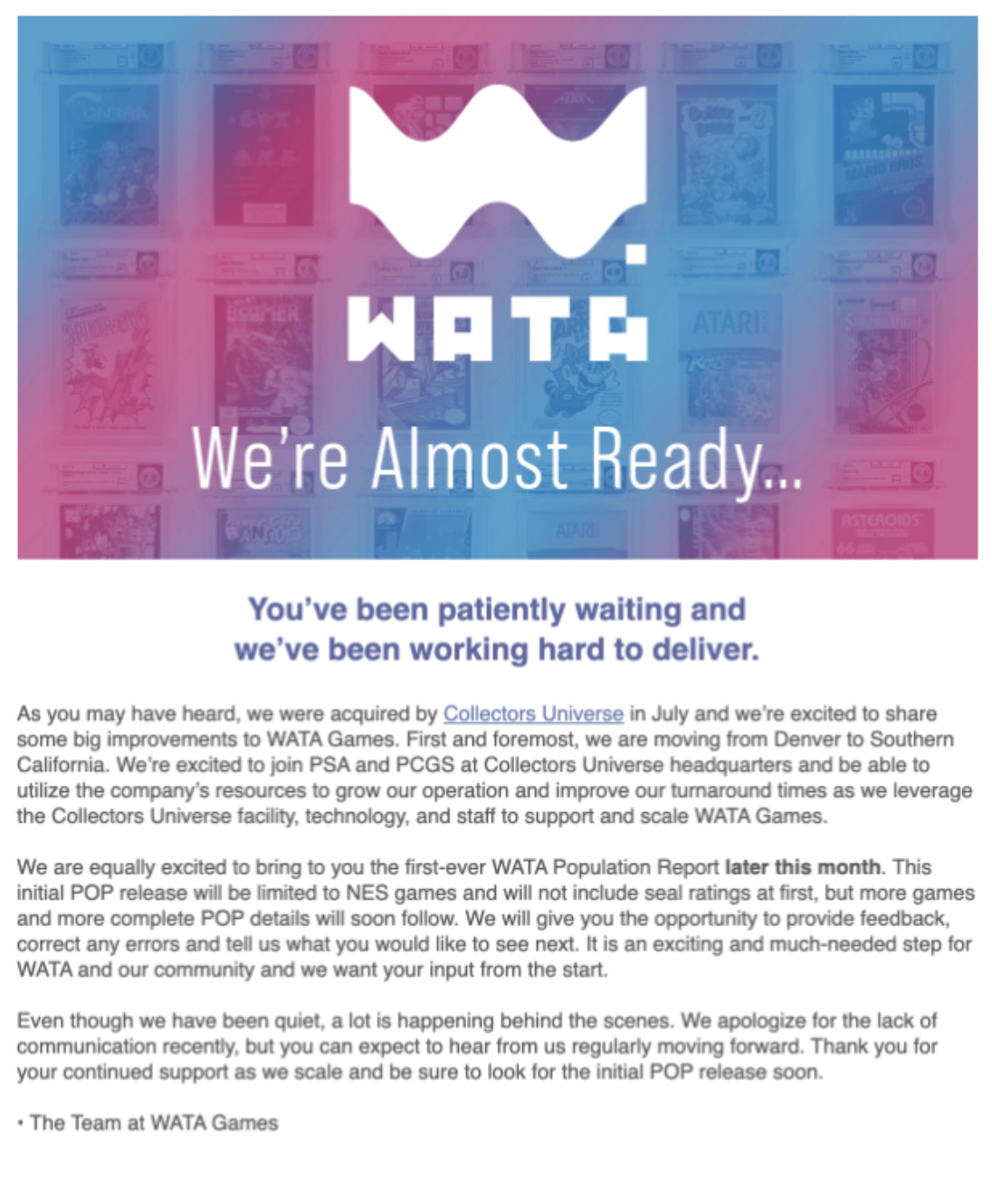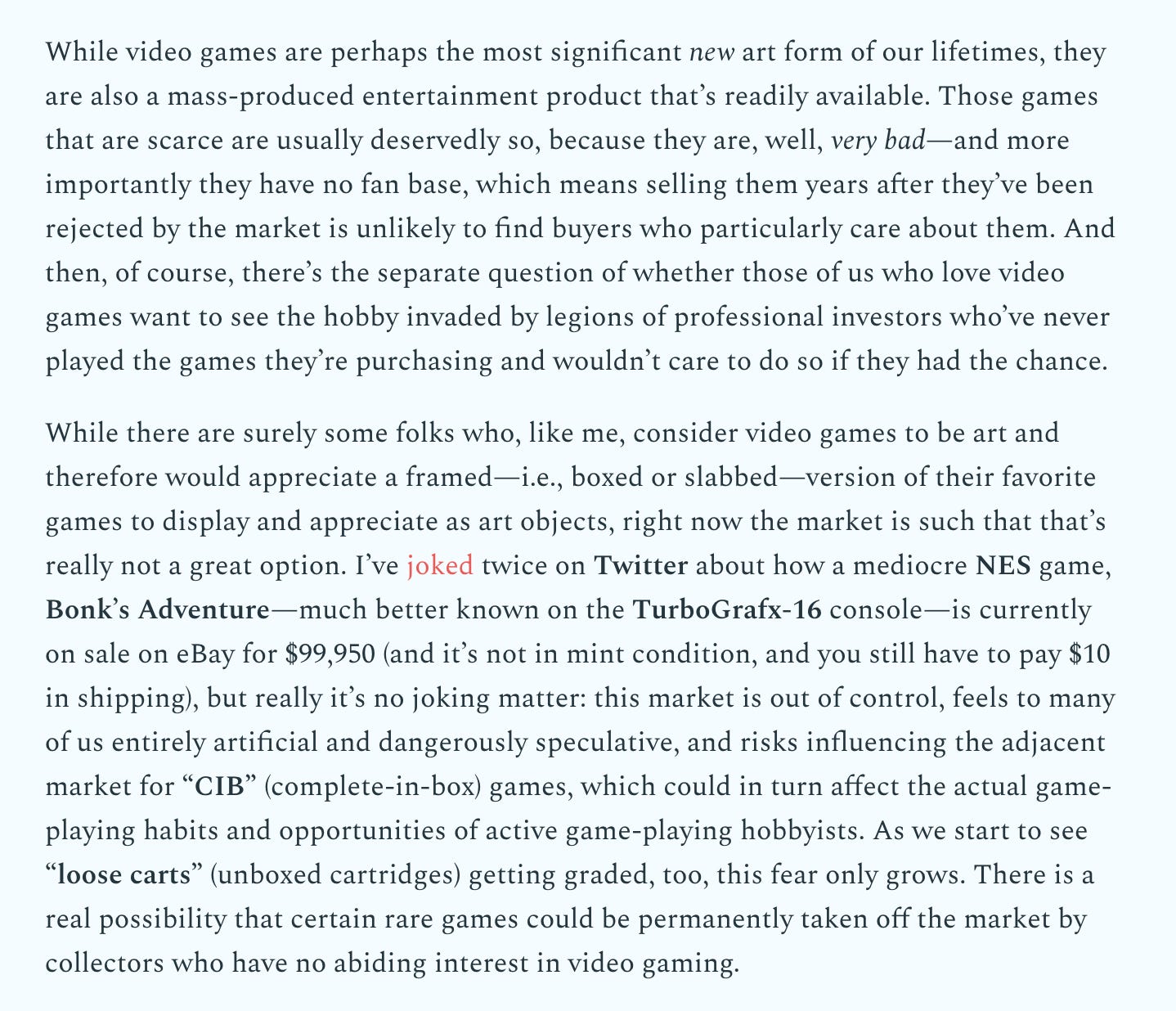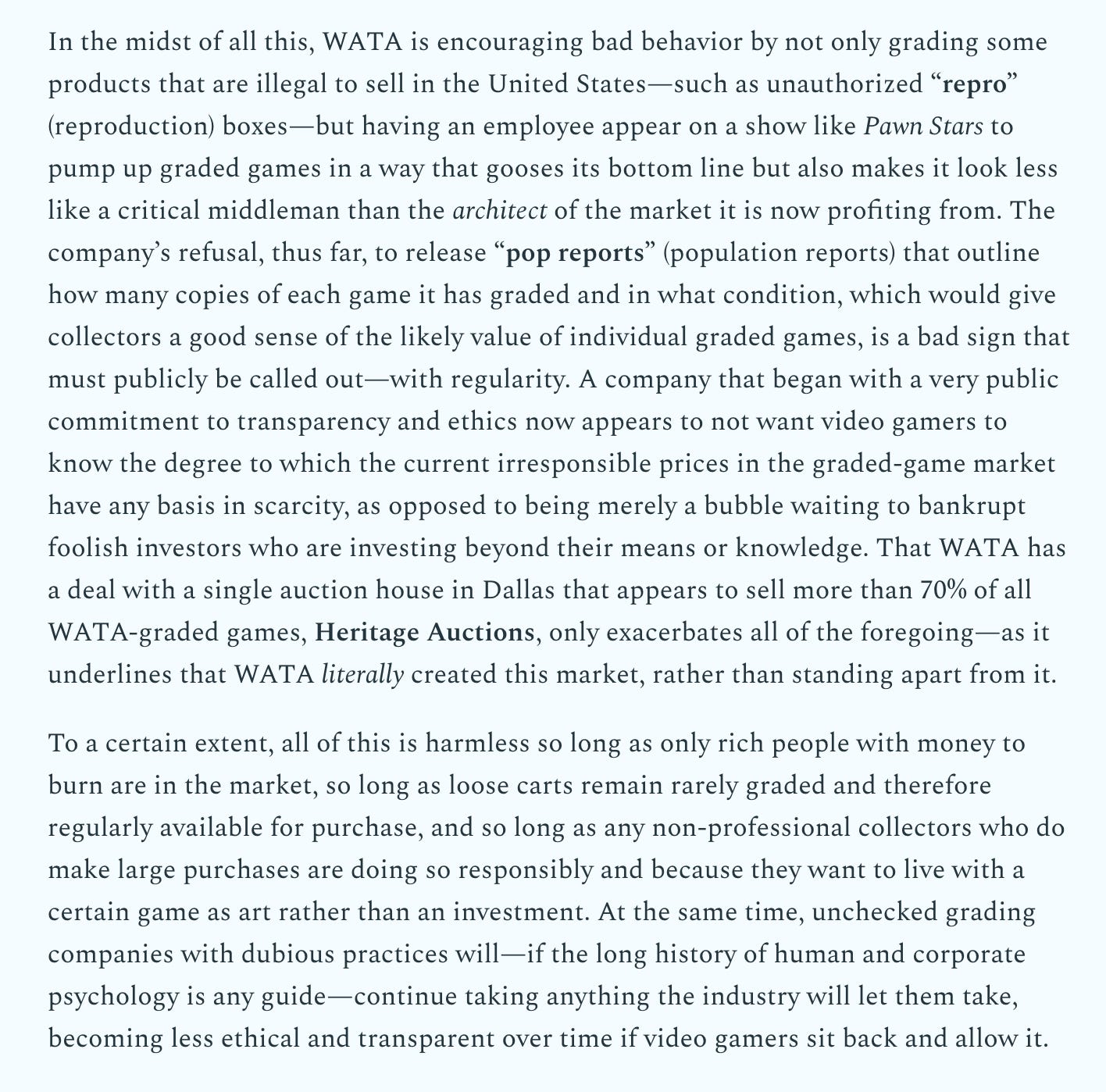(BREAKING NEWS) Pressure From RETRO, the Jobst Report, Major Media, and Other Video Game Grading Houses Pays Off: WATA Set to Issue Population Reports for the First Time Ever
A major push by investigative journalists and consumer advocates pays off as the hottest alternative asset-class market worldwide will now have systematized data available for the first time.
Introduction
RETRO has now been covering potential market manipulation in the fastest-growing alternative asset-class market in the world since early summer 2021—with coverage of the investigative reporting at RETRO appearing in publications all across the world.
This coverage—coupled with the startling revelations in a 50-minute documentary known as the Jobst Report, and recent announcements by WATA video game grading house competitors VGA and CGC that they’ll soon be releasing “population reports” (hard-data summaries of how many sealed video games of each title they have graded)—has now led WATA, the U.S. grading house most frequently accused of misconduct, to announce that it will come out with “pop reports” (as they are called in shorthand) this month.
While only Nintendo Entertainment System (NES) games will be accounted for in the forthcoming WATA report—and while no “seal grade” data will be revealed (a mirror-image of how RETRO currently publishes its wildly popular market research on NES games, and thus a possible attempt by WATA to distract from this console-specific, box-grade-only research, or to avoid publishing “new” data, as it knows that the type of data it plans to release is already available at RETRO)—this is unquestionably good news for those who worry that the fastest-growing growing collector ecosystem in the world was deliberately abusing its consumers by hiding from them information that is available in other collectibles markets: how many of each product exists in the market, and in what condition it exists.
The Announcement
Here’s the historic announcement from WATA:
What Preceded This News
Links to major-media coverage of this topic can be found by clicking the first link in this RETRO article, while links to RETRO’s coverage of WATA can be found below:
A Major Scandal at the Heart of a New “Alternative Asset Class” Market Is Clearly About Something Other Than Vintage Video Games (August 29, 2021)
RETRO Responds to WATA Co-Founder Mark Haspel (September 4, 2021)
America's Video Game Scandal Continues: More Evidence of Deception By Grading Company WATA (September 19, 2021)
Halloween Night Video Game Auction Set to Break Multiple World Records and Change Video Gaming Forever (October 21, 2021)
How Proof Games Led to RETRO Which Helped Lead to This
When the predecessor to RETRO, Proof Games, launched in late July of 2021, it was launched with an essay that included the following:
This essay, and the coverage of WATA at Proof Games that followed it, led to WATA and Heritage Auctions both issuing blanket public denials of any misconduct—and Proof Games being contacted by a representative of Goldin Solutions, a top PR firm hired by WATA. That all three entities were aware of, and unnerved by, the coverage of them at Proof Games (and thereafter RETRO) is clear. What was not clear was what any of them would do to remedy the issues that RETRO and even more so the Jobst Report had highlighted and brought to the attention of industry outlets worldwide.
In light of today’s news, it’s incredible to think that it was over three and a half years ago that then-WATA CEO and president Deniz Kahn falsely promised consumers, during a media interview, that purchasers of WATA’s tamperproof cases would have access—beginning in June 2018—to an app that would provide them with pop reports for the title they had purchased and possibly other game titles (see 3:00 in the video below):
But even as WATA continued to sell cases with a visible “matrix” advertised as being attached to a WATA app, that app—and the population data it was to hold—somehow never materialized. What did materialize was evidence that one of the two men in the video above, WATA executive Mark Haspel, was secretly having his games graded by WATA in contravention of WATA policy and at a time he may have had access (via his work, conversations with men at WATA, or a database) to non-public population intel.
In the meantime, Proof Games and RETRO released a series of population report-like market analyses—focused on NES games and box condition data—intended to further push WATA toward doing the same. Below are two of these RETRO market reports:
September 2021 Sales Report for Sealed and Graded Nintendo Entertainment System (NES) Games
November 2021 Sales Report for Sealed and Graded Nintendo Entertainment System (NES) Games
While many market analysts wrote, following the Jobst Report and coverage of WATA at RETRO, that the push by Karl Jobst and this publication for consumers’ rights in the collectibles market had failed because institutions and rapacious video game re-sellers—who generally benefit from falsely claiming that certain games they hold are rare—were incapable of being shamed by investigative journalism, it’s now evident, from the announcements that have now come from all three of the nation’s biggest video game grading houses (WATA, VGA, and CGC) that this push for transparency in a global market regularly written about by the likes of the New York Times (link), CNN (link), and major gaming industry outlets the world over has been successful.
This is a great day for consumer rights—so I’m thrilled to share this news with you!








